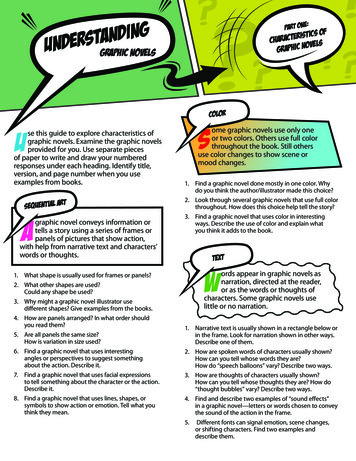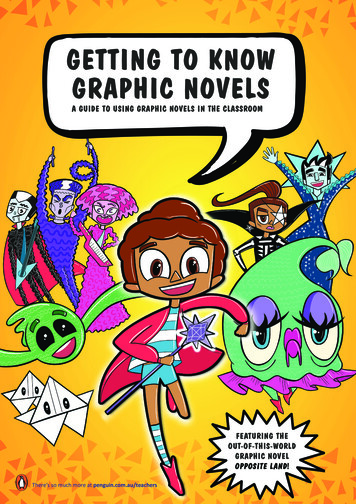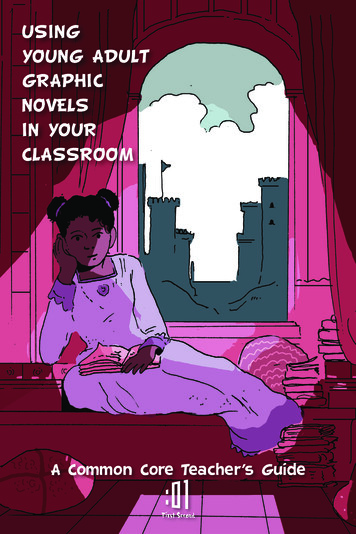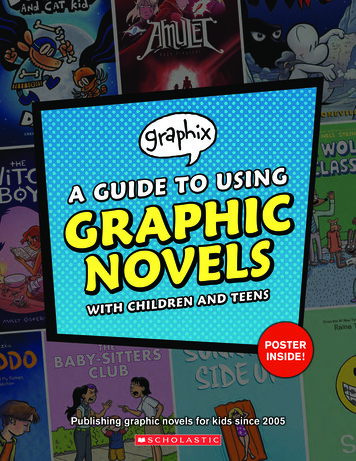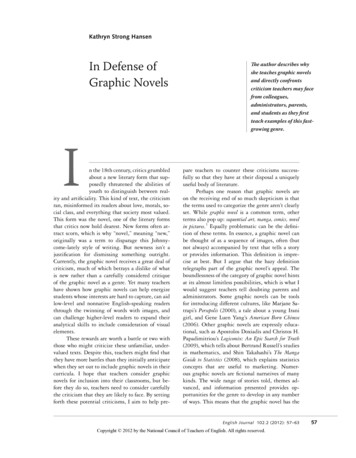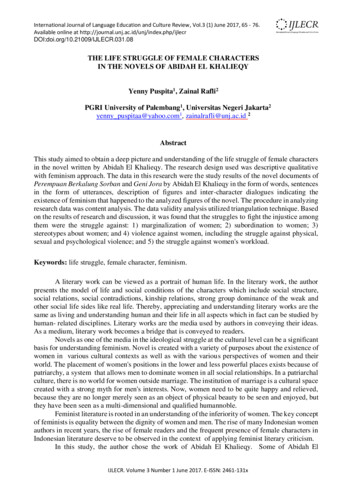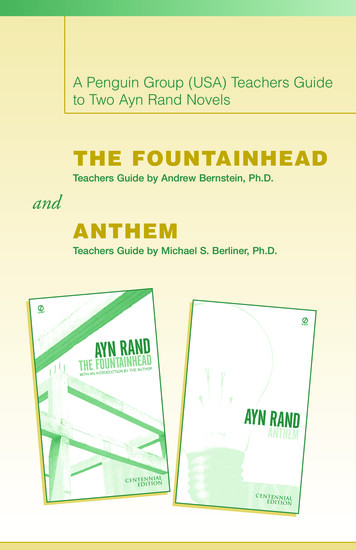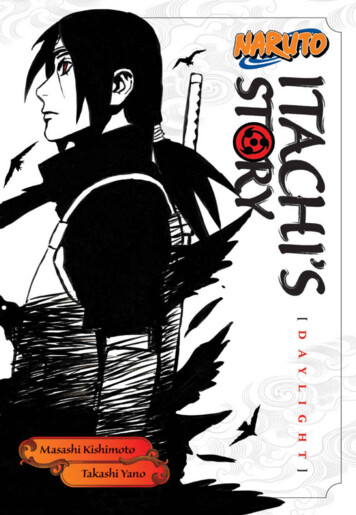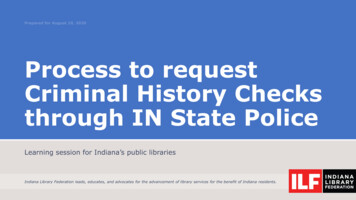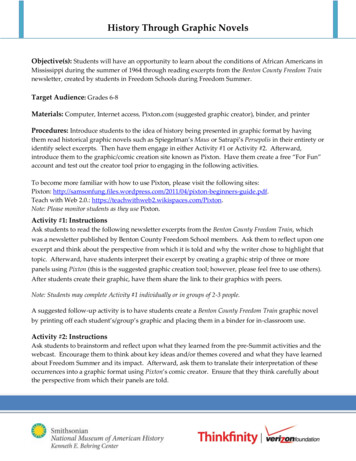
Transcription
History Through Graphic NovelsObjective(s): Students will have an opportunity to learn about the conditions of African Americans inMississippi during the summer of 1964 through reading excerpts from the Benton County Freedom Trainnewsletter, created by students in Freedom Schools during Freedom Summer.Target Audience: Grades 6-8Materials: Computer, Internet access, Pixton.com (suggested graphic creator), binder, and printerProcedures: Introduce students to the idea of history being presented in graphic format by havingthem read historical graphic novels such as Spiegelman’s Maus or Satrapi’s Persepolis in their entirety oridentify select excerpts. Then have them engage in either Activity #1 or Activity #2. Afterward,introduce them to the graphic/comic creation site known as Pixton. Have them create a free “For Fun”account and test out the creator tool prior to engaging in the following activities.To become more familiar with how to use Pixton, please visit the following sites:Pixton: on-beginners-guide.pdf.Teach with Web 2.0.: https://teachwithweb2.wikispaces.com/Pixton.Note: Please monitor students as they use Pixton.Activity #1: InstructionsAsk students to read the following newsletter excerpts from the Benton County Freedom Train, whichwas a newsletter published by Benton County Freedom School members. Ask them to reflect upon oneexcerpt and think about the perspective from which it is told and why the writer chose to highlight thattopic. Afterward, have students interpret their excerpt by creating a graphic strip of three or morepanels using Pixton (this is the suggested graphic creation tool; however, please feel free to use others).After students create their graphic, have them share the link to their graphics with peers.Note: Students may complete Activity #1 individually or in groups of 2-3 people.A suggested follow-up activity is to have students create a Benton County Freedom Train graphic novelby printing off each student’s/group’s graphic and placing them in a binder for in-classroom use.Activity #2: InstructionsAsk students to brainstorm and reflect upon what they learned from the pre-Summit activities and thewebcast. Encourage them to think about key ideas and/or themes covered and what they have learnedabout Freedom Summer and its impact. Afterward, ask them to translate their interpretation of theseoccurrences into a graphic format using Pixton’s comic creator. Ensure that they think carefully aboutthe perspective from which their panels are told.
History Through Graphic NovelsFollowing this reflective exercise, have students work individually or in groups with 2-3 people tocreate a graphic strip of three or more panels using Pixton (this is the suggested graphic creation tool;however, please feel free to use others). After students create their graphic, have them share the link totheir graphic creation with peers.A suggested follow-up activity is to have students create a National Youth Summit Freedom Summergraphic novel by printing off each student’s/group’s graphic and placing them in a binder for inclassroom use.
History Through Graphic NovelsExample Comic: Freedom Summer Remembrances by Intern
History Through Graphic Novels“The Negroes and Whites”Koenig Collection ACNMAH 0558 series 2 box 1
History Through Graphic Novels“The Negroes of Mississippi”Koenig Collection ACNMAH 0558 series 2 box 1“Feelings about the Freedom Workers”Koenig Collection ACNMAH 0558 series 2 box 1
History Through Graphic Novels Following this reflective exercise, have students work individually or in groups with 2-3 people to create a graphic strip of three or more panels using Pixton (this is the suggested graphic creation tool; however, please feel free to use others).
